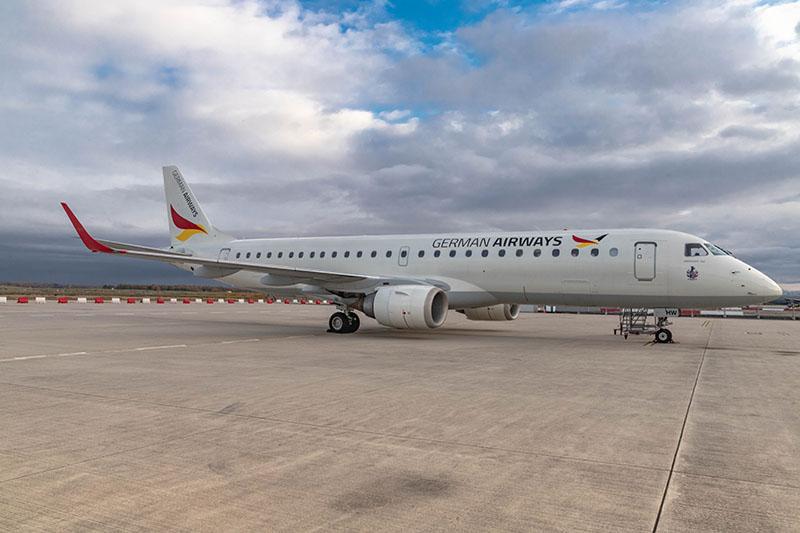
The ACMI market promises a steady source of work for the next few years at least, according to the head of one of Europe’s oldest airlines.
German Airways, which began life as Westdeutsche Luftwerbung (WDL) in 1955 and is Germany’s second-oldest airline after Lufthansa, operates a fleet of eight Embraer 190LRs. The current shortfalls of aircraft deliveries from the major manufacturers mean that the Cologne-based company’s aircraft are fully employed.
Similarly, personnel shortages throughout the industry mean that German Airways’ flightdeck and cabin crews are in demand – a situation that is also expected to persist over the coming years.
Most wet-lease operators opt for the Airbus A320 or Boeing 737 families. But there was good reason for German Airways to adopt the smaller Embraers, MD Oliver Lackmann said.
“We had a fleet of BAe 146s in the past. Those were 100 seats, so it was a logical decision to look at an aircraft to replace those. We already had customers who were looking at those 100-seaters.”
German Airways operates its E190s in a two-class layout, 88 economy and 12 premium. This 100-seat layout fits precisely with the configurations of several of German Airways’ clients’ fleets.
Unlike many European airlines that operate ‘Euro business class’-type arrangements with few changes over the economy cabin except for blocked-off seats to give premium passengers more privacy, German Airways’ premium cabin has increased seat pitch.
German Airways currently has five of its aircraft on lease to KLM Cityhopper, and a sixth operating with Spanish airline Binter Canarias. The seventh is used for charter work, while the final member of the fleet is held as a reserve.
Many of the airline’s charter flights are operated on behalf of German sports teams, which Lackmann is prevented from naming through confidentiality agreements.
Lackmann, who still flies and has just achieved his type-rating on the Embraer to add to those on the A320 and 330, as well as the Boeing 737, is confident of German Airways’ prospects.
“We’re absolutely convinced there’s a niche and a market for us. There’s no doubt about it, especially with our 100-seaters, we will have a sustainable business for the next year or two. That’s been the case in the past and will be in the future.”





